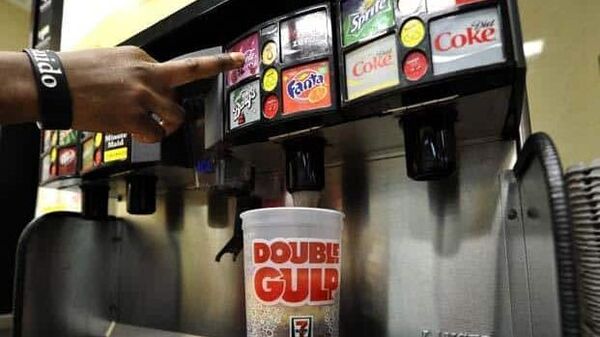There was good motive to keep away from merchandise with the unreal sweetener aspartame even earlier than the World Well being Group categorized it as a “doable carcinogen.” Now weight loss program soda drinkers may need to give up their cans. However first, some perspective: “Potential carcinogen” is the weakest of three bins into which WHO classifies something that’s even remotely tied to most cancers in any form of examine. It labels substances with extra critical hyperlinks to most cancers as “possible carcinogens” and if the proof is admittedly robust, “carcinogenic to people.” That center class contains issues that many people eat routinely, together with alcoholic drinks and very popular drinks (linked to oesophageal most cancers). The proof behind doable carcinogens is extra tenuous. The low-frequency radiation emitted by cell telephones is in that class as a result of research have advised weak associations with most cancers in animals.
Within the case of aspartame, some research present rats fed excessive doses of aspartame usually tend to get mind most cancers and a number of other different malignancies. Including to the priority, a big 2022 examine adopted greater than 100,000 individuals in France and located a doable small elevated most cancers danger in heavy customers of synthetic sweeteners. However research like this may’t show that the sweeteners induced most cancers. It’s doable that the group consuming extra sweeteners additionally ate extra processed meals, or had been extra overweight, or there was another hyperlink.
A greater option to get info can be to deal with the people extra just like the lab rats, feeding some individuals aspartame and evaluating them to manage teams. And now somebody has completed that, establishing a randomized managed trial. The examine wasn’t set as much as discover a most cancers hyperlink, but it surely did join synthetic sweeteners with the identical dangers related to sugar. A number of different research have linked aspartame to spiking blood sugar, and in the long run, to greater blood sugar and expanded waistlines. Maybe there’s simply no risk-free soda.
The FDA approval of aspartame in 1981 was mired in controversy. Former US protection secretary Donald Rumsfeld ran the corporate that makes aspartame, G.D. Searle & Co, and was additionally a part of Ronald Reagan’s transition group. As quickly as he was elected, Reagan appointed a brand new FDA head who reportedly stacked a scientific panel to push by means of aspartame’s approval. At present aspartame is in weight loss program drinks, gum, ice lotions, puddings, cereals and different packaged meals marketed as sugar-free. Wouldn’t it have been accredited if not for Rumsfeld’s affect? Possibly.
Huge waves of loss of life didn’t comply with using aspartame, however there was no enchancment in rising charges of weight problems or Kind 2 diabetes. Faux sugar hasn’t made America more healthy. That randomized managed trial helps clarify why. The examine, printed in 2022 within the journal Cell, in contrast six teams, 4 consuming every of 4 totally different synthetic sweeteners and two management teams. The sweeteners had been Sucralose, Aspartame, Stevia and Saccharine. One management group bought no sweetener and the opposite bought a tiny quantity of actual sugar, the identical quantity added to synthetic sweetener sachets to offset bitterness.
The examine’s chief, Eran Elinav of the Weizmann Institute of Science in Israel, informed me he needed to discover whether or not synthetic sweeteners had been interfering with intestine microbes—the microbiome. Two management teams confirmed no adjustments of their microbiome composition or their blood sugar management. The 4 that bought synthetic sweeteners confirmed adjustments in each after simply two weeks of consuming an quantity just like what shoppers may get ingesting a few weight loss program sodas a day. The purpose, Elinav mentioned, is that these substances don’t simply move harmlessly by means of the physique. His outcomes, he mentioned, had been attention-grabbing as a result of the themes getting the sweeteners reacted very otherwise, some displaying nearly no change and others substantial adjustments in microbial communities and blood sugar.
Even a low chance of danger is perhaps sufficient motive for some individuals to modify to water or unsweetened drinks, given the best way latest research forged doubt on any metabolic profit. What ought to individuals with a candy tooth do? Elinav mentioned he completely doesn’t need individuals to interpret his examine to say they need to swap again to drinks closely sweetened with common sugar or corn syrup. These are tied to all types of well being issues, together with most cancers.
But it surely’s unattainable to show past doubt that something, even cell telephones, won’t ever trigger anybody to get most cancers. So we now have to weigh the dangers and advantages. After I interviewed American Most cancers Society head Otis Brawley about cell telephones, he acknowledged the potential for a hyperlink, however we had been each speaking on our cell telephones on the time. After I talked to Erinav, he wasn’t ingesting a weight loss program soda—and he informed me he opts for water. ©bloomberg
